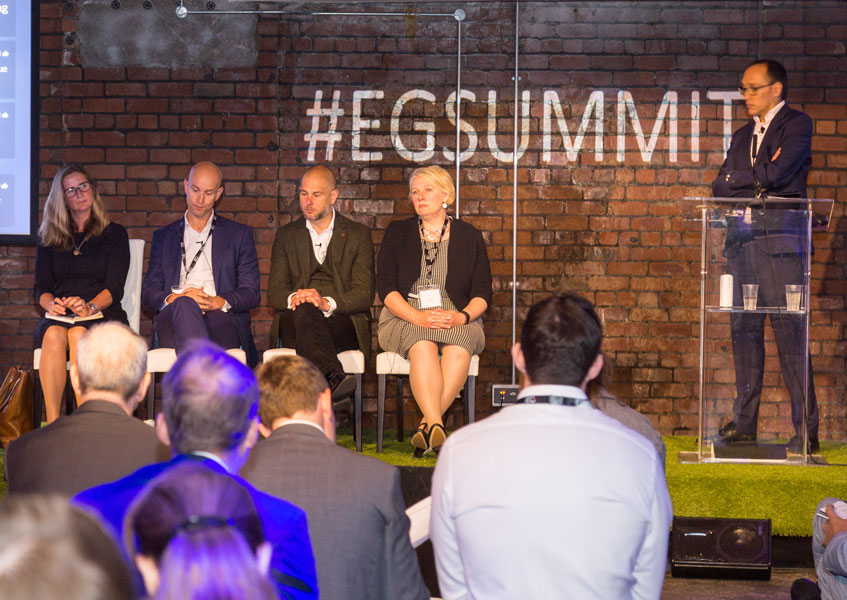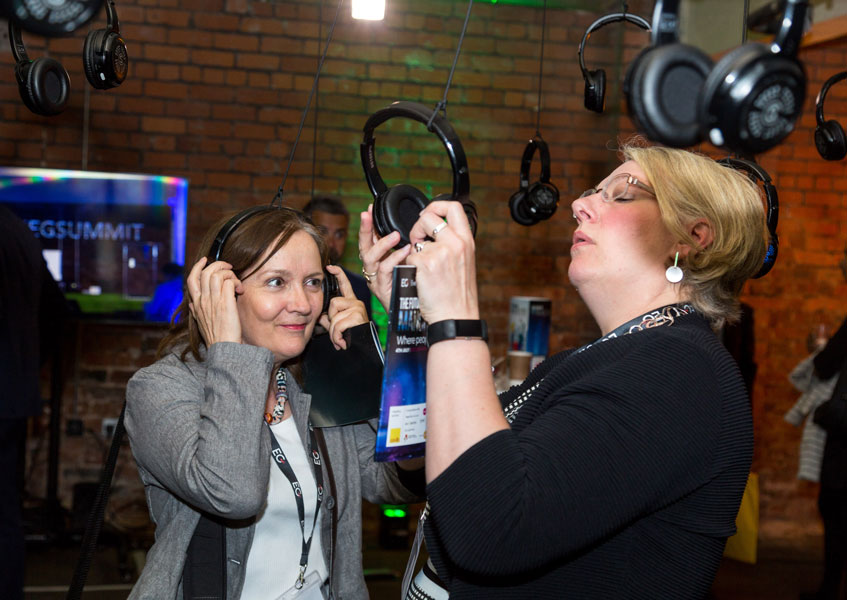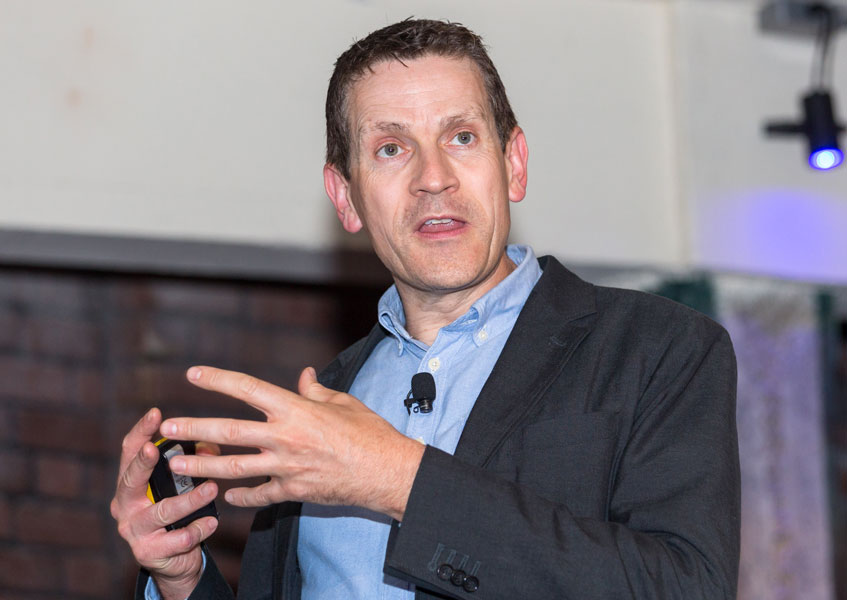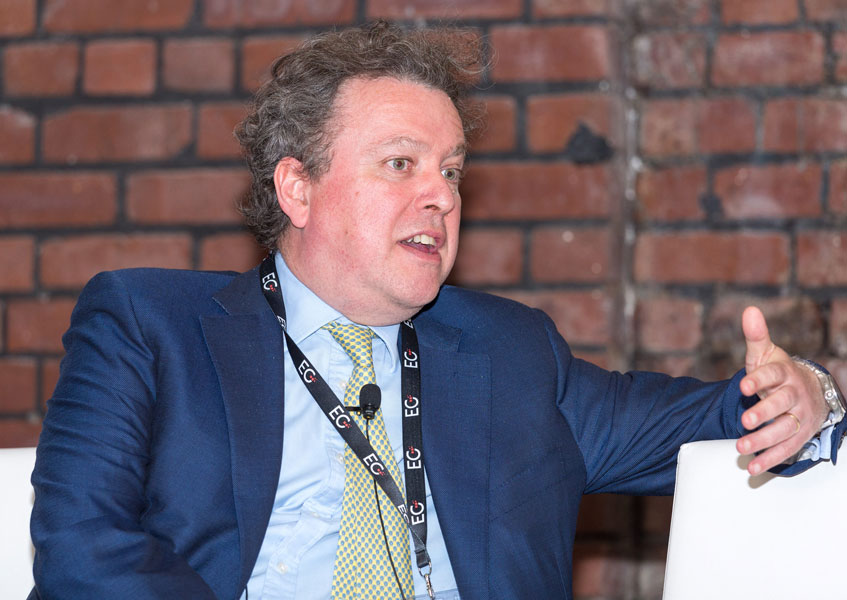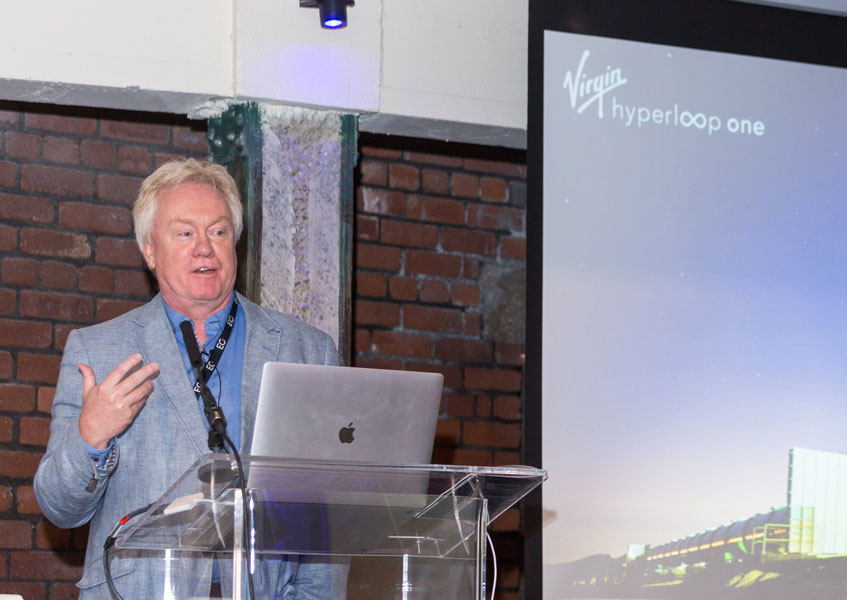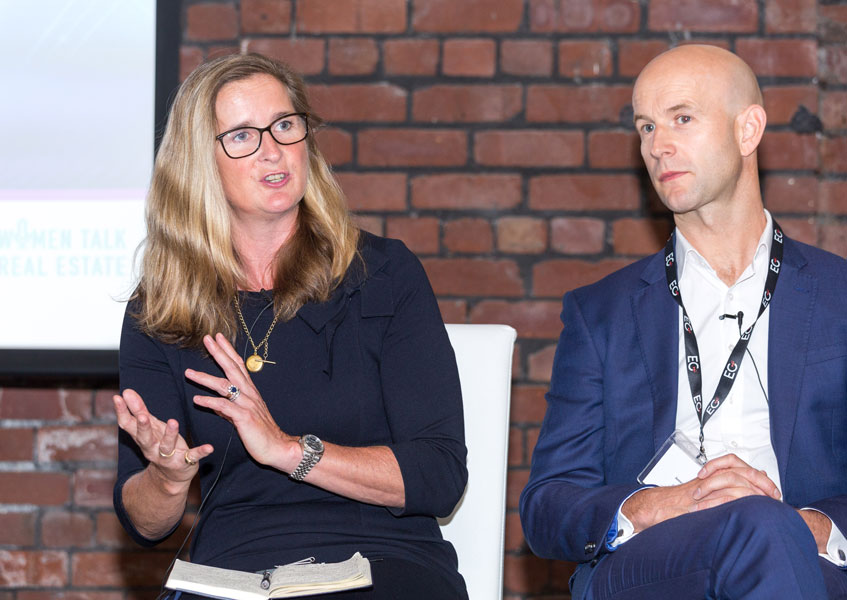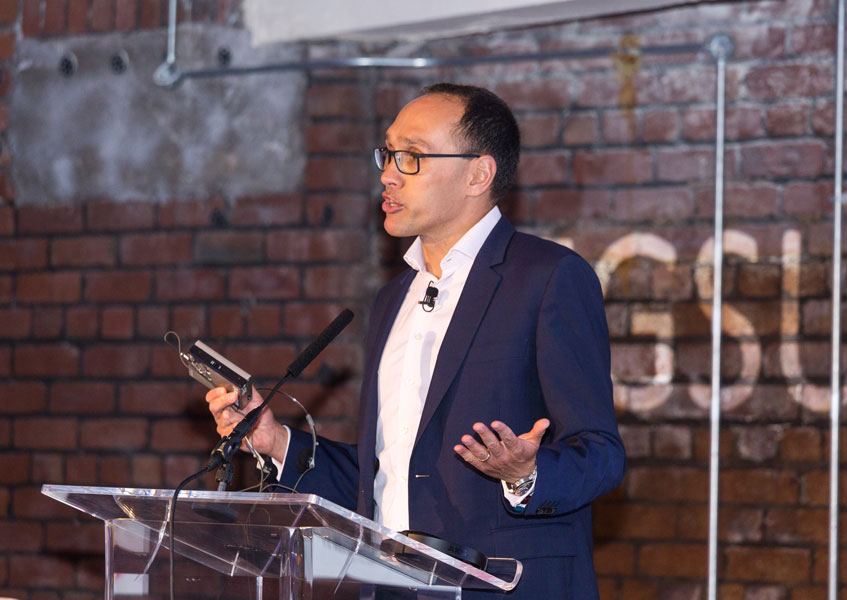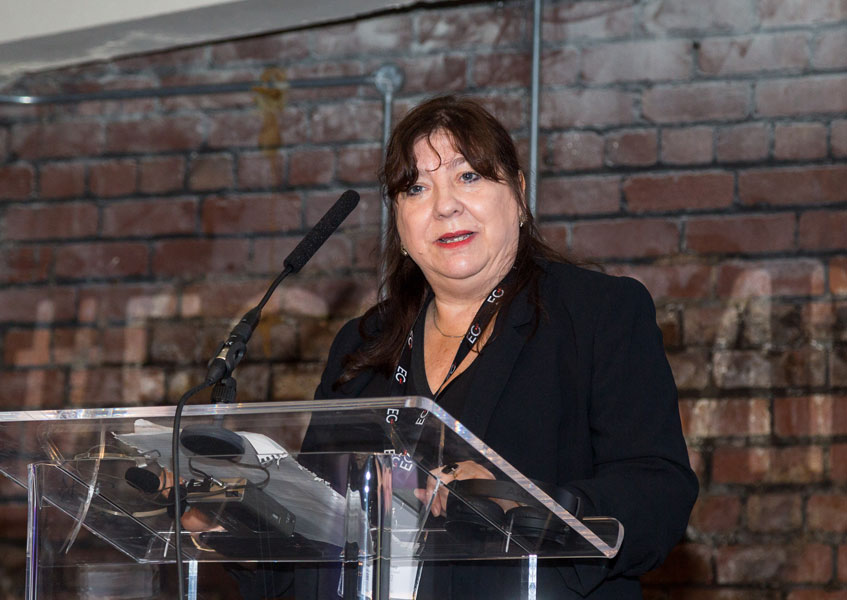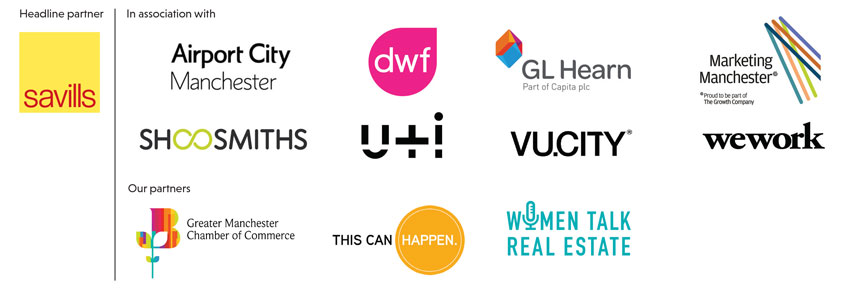“Manchester is as good as London,” Savills head of European commercial research Mat Oakley told delegates at EG’s The Future of Manchester summit last week. “Arguably better… if you don’t like Londoners.”
Although (assuming) Oakley was joking, it’s an accurate assessment of the increasingly irresistible draw of Manchester.
Once considered to be in the shadows of London, Manchester has emerged from a period of rapid growth as strong competition for its southern counterpart.
The city’s economy is growing stronger and, according to Manchester City Council, in 2015 it grew at a faster rate compared with London.
It is the second most visited city in the UK, the council’s chief executive Joanna Roney told summit delegates, and it is enticing major occupiers out of the capital with its lower rents, pool of graduate talent and an opportunity to offer its workforce a better standard of living.
And while London’s attention continues to be consumed by Brexit, and most recently the Conservative leadership tussle, Manchester remains resilient.
“This is Manchester,” Roney said. “We just get on and do the job.”
The job Roney was referring to is fulfilling the city’s ambitious plans for growth – of which real estate plays an integral part.
Read more: Which are the hottest UK tech cities outside London?
Schemes are under way across the city to provide high-quality commercial space to tempt big names in or existing ones to take up more space.
Spinningfields, NOMA, First Street, Landmark and Mayfield are just a few developments that are under construction or planning.
According to Greater Manchester Combined Authority’s draft spatial framework, which outlines the region’s housing, employment and environmental plans for the next 20 years, more than 200,000 new homes need to be delivered over this period.
And by 2050, Manchester wants to be a zero-carbon city.
The city’s ambitions are big. But while it plans for shiny new offices (Landmark is said to set the record for the highest rent charged in the city) and PRS towers with apartments priced at £1,500 per month, how can it also provide a real estate portfolio that caters for all?
This was a key focus at the summit, hosted at Victoria Warehouse, where discussions about what the future of the city looked like – and how real estate could shape it.
Communities for all
Manchester’s growth has been significant. According to research by think tank Centre for Cities, it saw the fastest growth in England and Wales between 2002-15, with its population increasing by 149% and jobs growth of 84%.
And according to Urban Splash chairman Tom Bloxham, this will continue.
“People wonder if Manchester’s development can get any bigger but a mega trend in the city is urbanisation,” he says.
“Over the past 30 years we’ve seen a large growth in the number of people living in the city centre but you’ve seen nothing yet, as the population is set to double in the next 20 to 30 years.”
With expansion on the horizon, creating “inclusive, not exclusive communities” should be a key priority for developers, says Savills’ head of Manchester office, James Evans.
Read more: The man who wants to have Manchester all mapped out
But according to Savills, not everyone can afford the best commercial space the city has to offer. In 2017-18, 73% of office take-up was at a maximum rent of £25 per sq ft. However, the average rent that tech companies pay is £19 per sq ft.
“We have to work hard to have a real estate portfolio to accommodate for everyone,” he said. “Not everyone can afford a shiny building at Spinningfields.”
U+I is one developer trying to figure out this issue of inclusivity. It is expecting to put in a planning application for its £1bn regeneration of its Mayfield site, located next to Piccadilly station, soon.
James Heather, U+I’s development director with responsibility for the overseeing the development, said it has a “tough job” on its hands ensuring that the scheme is “loved by everyone”.
One solution to this has been opening up the scheme to the wider city through its public realm and green spaces.
“The park is massively important to us,” he said. “When you think about the best cities, you always think about the cities with the best parks, and we must always remember that.”
He said getting the design of these spaces right and ensuring their proper upkeep was essential. “If there isn’t that capital and the desire to maintain it then you’ve got it wrong.”
But it is not just city residents who need to benefit from the city’s growth. The entire region needs to too.
Historically, while Manchester has flourished, surrounding areas haven’t been lifted up alongside it. But this is changing. Savills’ Evans referenced Muse’s £650m Salford Central development as one example of development in the Greater Manchester region.
Others include Salford City Council and the University of Salford seeking a private sector partner to deliver the £800m Salford Crescent masterplan, and the £1.2bn regeneration of Bolton city centre is set to start after heads of terms were agreed with Beijing Construction and Engineering Group, Bolton Council and developer and investor Midia.
Photographs by James White
Devolution calling
But to accelerate further growth, Roney says Whitehall needs to release greater powers to Manchester and its surrounding areas.
“Don’t try and control growth through central government”, she said. “Give it to us instead.”
However, with former London mayor Boris Johnson as one of the two candidates in the prime ministerial battle, could the devolution agenda be at risk with a potential leader whose career has been largely based on putting the needs of the capital first?
Northern Powerhouse minister Jake Berry has been a key figure in Johnson’s campaign. And Roney said having a Northern ally in Johnson’s ear could be helpful.
However, delegates were more sceptical over whether the Northern Powerhouse held any real authority in Whitehall.
“The Northern Powerhouse has lost its way,” said one delegate. “I doubt the influence it actually has in central government.”
Hyperloop hype
Devolution could not only help accelerate existing developments in planning, but also unlock new ones, which is exactly what Expert Alliance partner Alan James is hoping for.
It could enable the North to come up with groundbreaking solutions to solve its connectivity issue.
“Transport in the North has stood still,” argued James. “But we have the potential to create something radical.”
Enter hyperloop.
James, former vice president of Virgin Hyperloop One, argues the Richard Branson-backed infrastructure initiative could solve the North’s poor transport links.
The company is testing a system that would put passengers in vacuum-sealed tubes that would be sent hurtling at 600kph down routes across the country. He said it could lead to a typical three-hour commute by train from Liverpool to Newcastle taking just 18 minutes.
James argued the technology has significantly lower operations costs compared to high-speed rail.
He said hyperloop commuters could even be paid to travel if they use it off peak as part of a dynamic pricing system. However, he did not say how much a peak ticket could cost or how much the infrastructure could cost.
Sounds promising. But is it just a pie in the sky?
In one workshop, not a single delegate believed that hyperloop would arrive in the North. One delegate said: “I don’t think we’ll see this happen – certainly not in my lifetime, anyway.”
Wider regional support could be lacking as well. At EG Question Time in Leeds earlier this year, Leeds City Council chief officer of economic development Eve Roodhouse said implementing hyperloop wasn’t a priority for the city, which instead is focusing on making its existing infrastructure greener.
One delegate asked panellists if a simpler solution to poor connectivity was simply building more homes closer to city centres and marrying health, education and work facilities.
“It’s enormously challenging to do this,” said GL Hearn national head of infrastructure planning Andrew Walters. “Planners need to help us facilitate and improve this.”
The homelessness issue
While the focus of the summit was Manchester’s future, it also addressed the current issues facing the city.
And homelessness is one of these. In 2018, the Office for National Statistics put the official number of rough sleepers in the city at 123.
Ged King, who owns a barber shop in Sale, set up the Skullfades Foundation after he started offering free haircuts to people on the streets.
Skullfades now provides hygiene kits and food to the city’s homeless and offers support to tackle drug addiction plus hairdressing training for those looking for a better life.
King used the summit to ask big businesses in Manchester to help look for a solution to the problem.
His company is launching an initiative to pay for vulnerable people to train to become barbers in a bid to prevent them falling into a life on the streets, and says businesses could roll out the same sort model in their own organisations.
“When someone has become entrenched in this life, it is very difficult to bring them back from that,” he said.
“I feel like there’s much more of an effort that needs to be made from every part of the city to help this homelessness crisis.”
So while the future of Manchester from a development and growth perspective may be strong and bright, like all major growth cities, there are always those that get left behind. But with an ambition to be the best, could Manchester be the first UK city to really deliver place and space for everyone?
To send feedback, e-mail lucy.alderson@egi.co.uk or tweet @LucyAJourno or @estatesgazette








